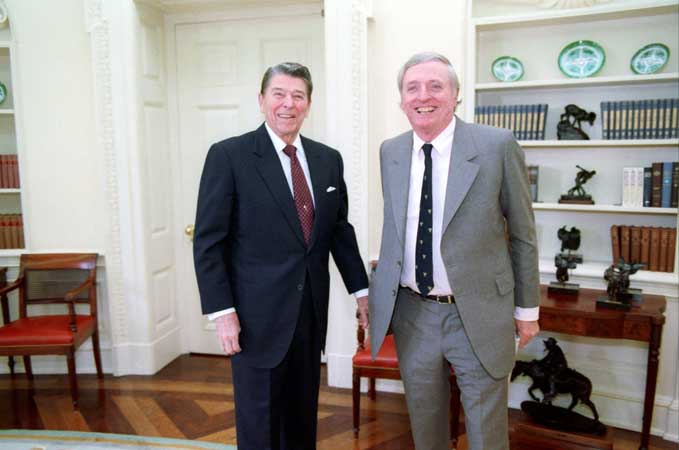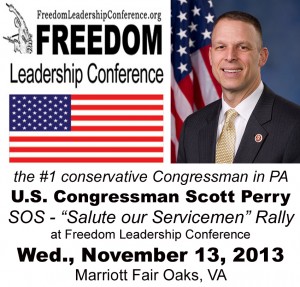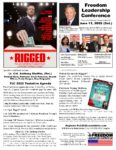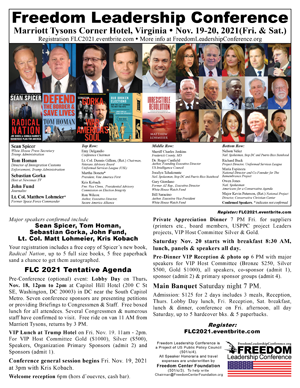One author raises questions worth discussing in debate on the role of issues in political campaigns
Argument continues among Republicans whether the stand by Senators Ted Cruz, Rand Paul, Marco Rubio, Mike Lee and some GOP Senate Conservatives, and the majority of GOP House Republicans, was counter productive after it led to the shutdown of the government and the major effort by President Obama and his allies to blame Republicans.
The fact remains that the uncompromising conservatives who attempted to defund Obamacare and were then pilloried by President Obama’s allies and by GOP moderates, were correct in saying that a one year delay ought to be enacted. And the entire country knows this position ONLY because of their courageous stand.
Conservatives who called for this sort of uncompromising stance believe strongly that Ronald Reagan was right in 1975 when he told the Conservative Political Action Conference (CPAC) that the GOP strategy ought to be to hold up “a banner of no pale pastels, but bold colors which make it unmistakably clear where we stand on all of the issues troubling the people”.
Moderates Republicans today who hate what the Senate and House conservatives did, say “it was all for nothing” as the Democrats in the Senate and in the House aided by Speaker John Boehner and a minority of GOP House members defeated them to raise the debt limit and implement Obamacare “on schedule” on October 1 (pun intended).
But is this an example of what Ronald Reagan was speaking of in 1975?
Reagan was reacting to the frustration of conservatives after the 1974 election defeat. The unelected President, Gerald Ford, had appointed the nemesis of movement conservatives, New York Governor Nelson Rockefeller, as his Vice President, and then run an issueless, establishment Republican campaign in the wake of Watergate and mistrust of government, which resulted in the loss.
The Publisher of National Review, the very thoughtful and always proper William Rusher, had written “The Making of the New Majority Party” and conservatives were discussing in 1975 his proposal to abandon the GOP and start their own, new political party because many believed the Party process was too rigged to allow GOP conservatives to prevail in primaries against entrenched GOP incumbents.
With that backdrop, Reagan replied to what he knew was being discussed by conservatives at that 1975 CPAC, stating plainly that no, we conservatives should not leave the GOP but stay and fight, and boldly propose conservative answers to the issues of the day.
Reagan did that in 1976, so well that he nearly won the nomination for President, coming to within only 100 delegate votes of defeating the incumbent GOP President.
William Rusher and conservatives stopped discussing the idea of abandoning the GOP but decided to stay and fight. Those who followed Reagan’s 1975 advice at CPAC, were proven right in in 1978 and in 1980 when they started winning GOP primaries for U.S. Senate, House of Representatives and the Presidency and emerged in leadership positions in GOP organizations at all levels across America.
The use of conservative “bold colors” instead of “pale pastels” of the GOP moderates, proved it could win, ultimately gaining the Presidency, Senate and House.
One of the premier and indeed founding organizations on the right which helped unite conservatives of different camps, starting in the 1950’s and continuing until the triumph of the Reagan revolution, was William F. Buckley’s National Review. NR’s publisher, the late William Rusher, moved away from his 1975 idea to start a “new majority party” and with Editor William Buckley, were part of the conservative Reagan revolution, which used our “bold issues” to win electoral victory.
As conservatives debate some of the very same issues and tactics today that were discussed and debated 40 years ago – whether we should moderate our views to win future elections, or continue with the Reagan “no pale pastels but bold colors” strategy clearly embraced by Senators Cruz and Lee and colleagues and the House GOP majority, questions now arise as to where does National Review stand in the current debate?
Addressing this question is Charles G. Mills, one of the original leaders of an organization nearly as old as National Review, Young Americans for Freedom. He has not been active in YAF for many years and does not speak for them nor even for this writer. But the views he expresses here do very much fit into the current debate and with his kind permission, are reprinted below. My purpose is to focus thoughtful attention on our purpose as conservatives, with Charles’ able assistance. Why?
At the recent Freedom Leadership Conference in northern Virginia, one of the speakers and founders of the new monthly version of the conference, Tom Cranmer, mentioned in his remarks how the local GOP leaders he had spoken to appeared to have no interest in issues. Like Charles Mills, Tom Cranmer is an alumus of the 1960′s Young Americans for Freedom, having even attended the blockbuster rally for Barry Goldwater in 1962 at Madison Square Garden in New York City with 18,000 people (and his wife is also a YAF alumnus).
Another Conference member at the October function, said that he had also spoken to a top GOP official with his county organization (different area from Tom’s), and found the same problem. “I asked him what issues he was using to fight the liberal Democrats and he said that wasn’t his department, it was up to the candidates to speak about issues.” Pressed further, I was told that the response was “my position is whatever the local Congressman says.”
What Charles G. Mills is saying in this offering (below) almost sounds as if National Review has moved ever closer to being a GOP house organ, than one which can always be counted on to criticize any moves by the GOP establishment which abandons our cause. Even worse, they now appear to embrace the position of William Buckley’s and National Review’s opponents from the 1950′s and 1960′s.
Having been a subscriber in the past, I’d very much regret such movement by National Review. Having been a lifetime registered Republican who votes regularly in primaries, I very much regret such a “pale pastels,” colorless sort of campaign that was decried at last month’s Freedom Leadership Conference. which searches for and reviews issues each month.
Charles Mills raises thoughtful questions about issues. Implicit in the article I recommend to you now, is the notion that issues and ideas do matter, not as a replacement for sound campaign tactics and strategy, but as the reason for them.
His questions will no doubt be promptly dismissed by establishment Republicans fearful of issues and of those whose loyalty is to their conservative principles first, and to the Party only second, and only as a vehicle to implement their philosophy. Charles reminds us that for us conservatives, our reason for participating in the GOP at all, is merely as a vehicle to implement our ideas.
I highly recommend this thoughtful and short article, and reproduce it below with permission.
National Review Repudiates Its Heritage
by Charles G. Mills
fitzgerald griffin foundation
GLEN COVE, NY — National Review recently turned its back on its origins by publishing a cover story praising President Eisenhower as a conservative. Eisenhower was exactly the kind of enemy of conservatism that National Review was founded to fight.
The first issue of National Review was dated November 19, 1955 and went to press the day Eisenhower came home from the hospital after his heart attack. Its masthead contained the names of real conservatives who would not be tolerated at today’s National Review, such as L. Brent Bozell, Medford Evans, Russell Kirk, Eugene Lyons, Frank S. Meyer, and Freda Utley.
The issue was naturally graceful to Eisenhower as a recovering heart attack patient. After all, in those days, a heart attack was often considered to be permanently disabling. In its lead editorial, however, it said that in that issue and future issues it would be critical, sometimes sharply so, of Eisenhower’s policies with which it disagreed.
The issue also contained an article by L. Brent Bozell, in which he pointed out that liberal Republicans could not start campaigning for President until they knew whether their leader Eisenhower would run for a second term. This article went on to say that Nixon was the only one the liberal Republicans were worried about. The article suggested a coalition of Senators Knowland, McCarthy, Dirksen, Bricker, and Bridges as an alternative to the Eisenhower Liberals.
Just two weeks short of National Review‘s first anniversary, Eisenhower showed the true extent of his depravity when he allowed the Soviets to overrun Hungary and kill thousands of people. Eisenhower did not extract a single concession in favor of the freedom of the Hungarian people.
Simultaneously, Eisenhower destroyed the career of the intelligent British Conservative Prime Minister, Anthony Eden, and he forced Christian Britain and France to turn the Suez Canal over to the socialist Moslem dictator Gamal Abdel Nasser.
In retrospect, none of this should have surprised us. After all, in 1945, Eisenhower sent 2 million anticommunist refugees back across the Iron Curtain, often to certain death.
When Richard Nixon became President in 1969, National Review began to compromise. In the March 1969 issue of Triumph, L. Brent Bozell, no longer with National Review, charged that the “conservative movement” had abandoned antistatism, nationalism, anticommunism, and constitutionalism. Bozell did not mention National Review, but National Review obviously felt stung by the charge. It unleashed a petulant and intemperate attack on Triumph.
Eventually two movements arose, neo-conservatism and big government conservatism. These movements were not antistatist, anticommunist, nationalist, or constitutionalist. They simply tried to harness the energies of American conservatism for their purposes — sometimes conservative, sometimes clearly not conservative.
Few places were more influenced by the neo-conservatives and the big government conservatives than National Review. National Review no longer seeks to restore state sovereignty, repeal the New Deal, bring back public piety, or free Cuba or mainland China. Far from it. It now embraces the very thing it was founded to fight — liberal Eisenhower Republicanism. One of National Review’s finest moments was the 1964 Republican Convention. Now it wants to toss out that moment with the trash.
**
Confession. Glenn Ryt knew and admired the late William F. Buckley and William Rusher. They have not been involved in the operation of National Review for many years before they both passed away. This article should not be construed as a criticism of these two– and all of those who have labored with them and who try to carry on their tradition today at National Review. But this writer does believe that the questions raised by Charles Mills are worthy of discussion among conservatives.
**
Glenn Ryt posts articles in support of coalition conservatives and the monthly Freedom Leadership Conference in northern Virginia. The next such conference will be on Wednesday, November 13 at the Fairfax Marriott Hotel at Fair Oaks Mall on Route 50 near I-66. The keynote speaker will be Colonel Scott Perry, the number one conservative Congressman in his first term from Pennsylvania (according to Heritage Action). Since the conference changed to a monthly event in late 2012 after 14 years, each monthly event is sponsored by a different conservative organization.
The November Conference is sponsored by Uniformed Services League as a post Veterans day “Salute to our Servicemen” and “Save our Servicemen” rally. The conference will also focus attention on the Liberty Amendments proposal of Mark Levin (which is also his bestselling book), part 2 of the series.
Glenn Ryt has many sources within the conservative movement that he has been a part of for many years, and aims to edify all parts of the conservative coalition, particularly those who focus on networking and coalition building at the Freedom Leadership Conference.
For more info about the November Freedom Leadership Conference go HERE.
To register to attend the conference (7 to 9 PM – no charge but a $5 suggested donation is asked at the door to pay for coffee, tea and dessert during the first half hour “social” time) go HERE.
To make application to become a conference member (allowing for you to attend future pre-conference dinners, usually held 5 to 7 PM at the same or nearby venue), or to become a subscriber (complementary) to the free conference newsletter, go HERE.
To “like” the Conference facebook page go HERE.
Conference flyer (8 ½ by 11 PDF) HERE.
**
Charles Mills, whose column is reprinted here today, writes a regular column he calls “The Confederate Lawyer.” The Confederate Lawyer column is copyright © 2013 by Charles G. Mills and the Fitzgerald Griffin Foundation, www.fgfBooks.com. All rights reserved. This column may be forwarded, posted, or published if credit is given to Charles Mills and fgfBooks.com. Charles G. Mills is the Judge Advocate or general counsel for the New York State American Legion. He has forty years of experience in many trial and appellate courts and has published several articles about the law. See his biographical sketch and additional columns here.
**
Your comments about this article would be welcomed and may be reprinted (with a reply) in a future column and will also be shared with Charles Mills (unless you request that this not be done). You may write RSVP@FreedomLeadershipConference.org and it will be forwarded to this writer. The views expressed by Glenn Ryt are his alone and do not represent the views of the Freedom Leadership Conference or the sponsor of any of the monthly conferences (which is different each month).




